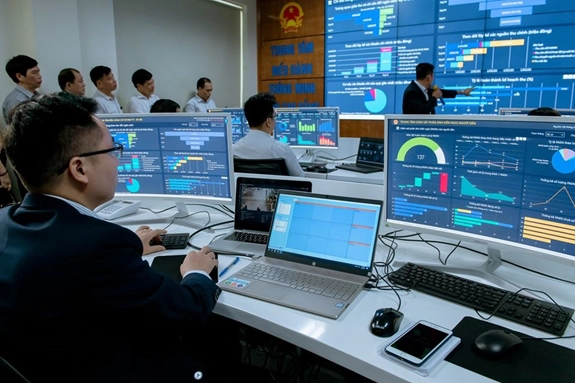
The Ministry of Information and Communications (MIC) on July 17 released a draft decree on the management, provision and use of internet services, which will replace the current Decree 72.
If they don’t remove unreasonable content as requested, MIC will use technical solutions to block websites, apps and platforms providing services.
A new requirement seen in the draft decree is that social networks will be required to temporarily or permanently block the social network accounts, community pages, community groups and content channels that often violate regulations, or commit serious violations affecting the national security.
The regulation designed by MIC will help handle the sources of violations as well as reduce agencies’ time and resources in blocking and removing content in violation.
Nguyen Duy Vi, CEO of Buzi, a media firm, said information has been spreading rapidly through domestic and cross-border social networks. He warned that if toxic information cannot be handled quickly, this will have serious impact on individuals and enterprises. And if wrong information about the State’s policies exists on social networks, this will seriously affect the prestige and operation of state agencies.
The request to remove violating information immediately and the decision to lock accounts in violation can help settle many problems at the same time. If so, platforms will have the responsibility of controlling users’ posts, while users will have to be responsible for content created by them.
Tran Viet Quan, CEO of Tanca, said it is necessary to clarify which kinds of violations have to be settled and how much time platforms are allowed to do this.
If the violations have relations with national security, they must be handled immediately. In this case, platforms must remove information in violation as soon as the watchdog agency sends links containing the violating information, with no need to send written requests.
As for other kinds of violations, it will be better to give platforms more time to investigate the cases.
Le Hoang Trong, president of Vinh Thinh Technological Solutions, said the new requirements, once legalized, will help clean up cyberspace, but specific time deadlines need to be set so platforms have time to find solutions.
